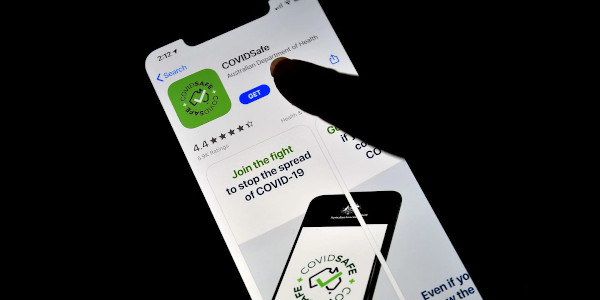The tension between privacy and coronavirus contact-tracing
KSJ fellow Anil Ananthaswamy writes in The Boston Globe that "We have to ensure that contact-tracing methods that compromise our privacy don’t become the norm."

COVIDSafe is a new Australian government smartphone app designed to make coronavirus contact tracing easier; photo by Saeed Khan/AFP via Getty Images
"Voluntarily offering up redacted information scrubbed of all identifying details when we find ourselves testing positive will be the high-tech equivalent of wearing a mask. We’ll be doing it to protect others."
— Anil Ananthaswamy, MIT Knight Science Journalism Fellow
Research and Perspectives for the Pandemic
Main Page | Civic Perspectives
EXCERPT | THE BOSTON GLOBE | APRIL 30, 2020
"An individual’s right to privacy and the greater common good are on a collision course as societies race to contain and mitigate the coronavirus pandemic. New technological solutions may help us achieve both aims, but they come with risks.
"There is universal agreement that a return to any semblance of normalcy during the ongoing pandemic is going to require at least two things. First, we need to scale up testing to find those infected with the virus, even if they are not showing symptoms, and make sure they are isolated. Next, we have to find people who may have been in close proximity to infected individuals long enough to have put themselves at risk — a process called contact tracing — and ask them to self-quarantine.
"Public health officials are good at manual contact tracing — which involves calling infected people and interviewing them to find those who might have been exposed. But manual methods, employed, for example, to deal with outbreaks of Ebola, cannot scale up to handle the coronavirus pandemic. Here’s where technology steps in."
Full article at The Boston Globe
Suggested links
MIT Knight Science Journalism Fellowships